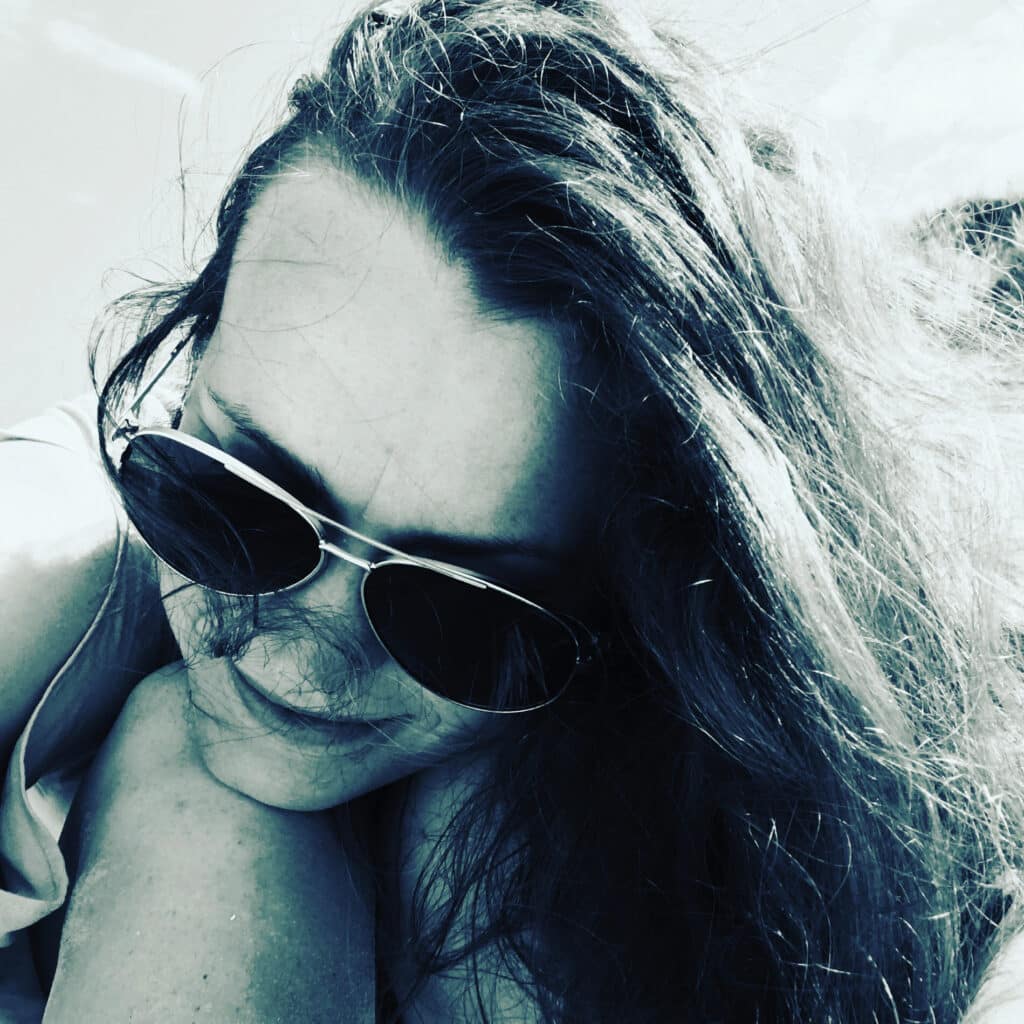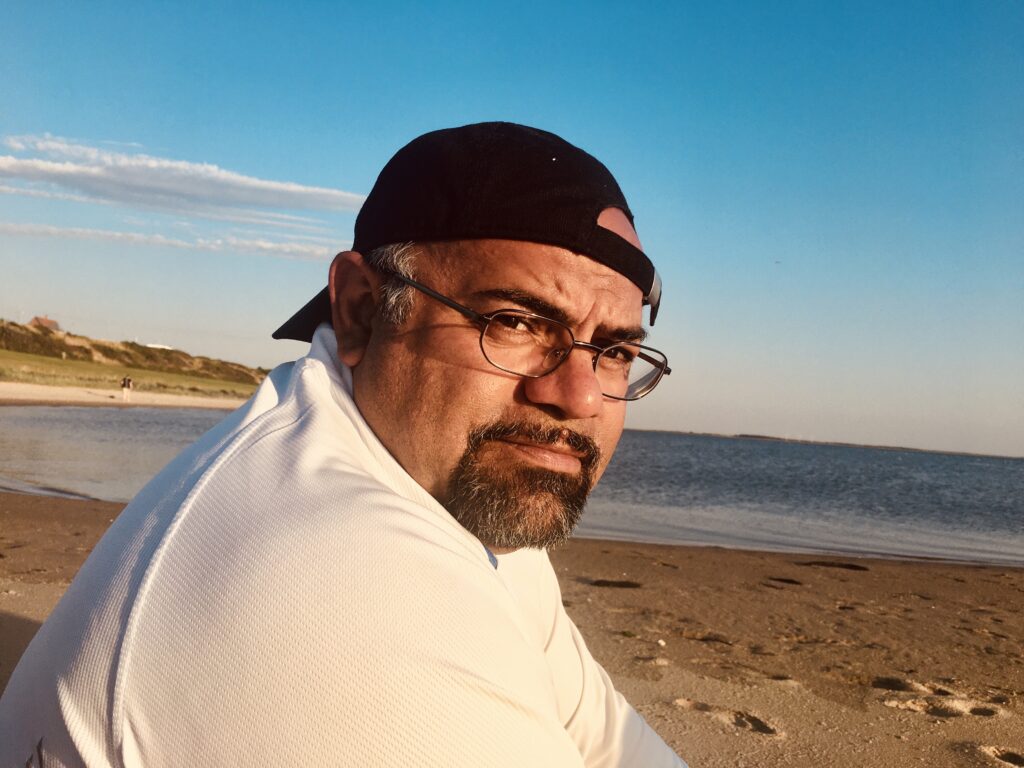One of the founders of the Praia de Iracema Portal
Tetiana Dvona
My name is Tetiana. I’m Ukrainian, one of the founders of the Praia de Iracema Portal Project, and I’ve trained as a teacher and translator, coach and designer. In addition, I am driven by a passion for living intensely and always learning. My story is a reflection of the various passions that define me – from art and design to psychology and coaching. I grew up in multicultural environments, which helped me develop an attentive eye for the differences and similarities that connect people.
I always seek a balance between reason and emotion, and I believe that the most meaningful experiences are those that touch the heart. I like to dive deep into everything I do, be it music, sport or any project that involves me, with the aim of creating genuine connections and turning ideas into something really special.
Today, I’m living in Brazil, where the diversity and local energy inspire me every day. I’m lucky enough to share this journey alongside my family and to accompany my son in his learning more closely, which has been an incredibly enriching experience.
1. When you arrived in Fortaleza, what was the first thing that struck you about the city?
We arrived at the beginning of July, at the height of the school vacations. The city, especially Praia de Iracema, was vibrant, full of life and movement. We stayed in a small hotel by the sea and immediately fell in love with our surroundings.
On the first evening, we went for a walk and came across an unforgettable scene: dozens of children gathered on the beach, flying kites. They were laughing, running and having fun as if time didn’t exist. The amount of kites coloring the sky was impressive – I didn’t even know where to look! The energy at that moment was contagious, a mixture of pure joy and freedom. That image has stuck in my memory and makes me smile to this day.
2. What cultural differences did you feel most when adapting to life in Fortaleza?
We come from Germany, where the mentality is very different from Brazil – in many ways. Here, people are happier, more relaxed and seem to take life more lightly. Everything happens at a more relaxed pace and, for me, that’s a good thing.
In Brazil, people really enjoy their free time and value the little moments in everyday life. This connection with life, this ability to live in the present, seems to me to be essential for true happiness.
3. How was the process of integrating into the local community? Did you find it difficult to connect with people?
Not at all! The people here are extremely open and kind. Always willing to help, they show an understanding that makes all the difference. The amazing thing is that you really feel accepted and respected – something that is essential when arriving in a new country.
Even when we had to deal with all the paperwork, we found a lot of patience and goodwill. This surprised me positively. There is a saying in Brazil, the famous “jeitinho brasileiro”, which means that there is always a solution, regardless of the difficulty. This mentality makes life much lighter and more dynamic.
4. What do you miss most about home and what do you like most about Fortaleza?
I miss Europe a lot – the climate, the architecture, the streets and even the way people talk. The food is also something I miss, although I have to admit that the flavors here are incredible. However, some products that I loved in Germany simply don’t exist here, such as certain types of cheese and that delicious chocolate. Brazilian chocolate has its charm, but it’s not the same.
Another thing I miss is Germany’s modern, fast trains. There, depending on where you live, you can be in another country in just a few hours. This ease of travel is something I really miss.
5. How has Fortaleza’s hot and humid climate affected your routine? Did you get used to it quickly or did it take you a while to adapt?
The first few days, I was delighted with the warmth and enjoyed every moment outdoors. But after a few days, it started to feel too hot. After a month, I confess I just wanted to get away from the heat! 😅
For a European, this climate can be very tiring. At a certain point, I started to feel unwell and my blood pressure dropped a bit. I spent a week or two practically stuck in an air-conditioned room – those were difficult days. But over time, I got used to it and came to appreciate the stability of the climate.
In Germany, the weather can change dramatically throughout the day: cold in the morning, hot in the afternoon and stormy at night. I never liked this unpredictability. Still, I miss the four seasons and the beauty of the changes throughout the year.
6. What do you think of Fortaleza’s local cuisine? Is there a dish that has become your favorite?
I love the local cuisine! What delights me most is the wide variety of fresh fruit and vegetables. I love mango and coconut, but also couscous and tapioca. My husband taught me how to make them, and now they’re part of our breakfast every day.
Another thing that makes me very happy is the huge supply of fresh fish and seafood – simply my favorite food! And, of course, the meat here tastes much more intense and succulent than in Germany.
One of the best experiences is walking along the Beira Mar at dusk and smelling the irresistible aromas of the stalls along the promenade. It’s impossible not to stop and try it!
7. Have you experienced any culturally unexpected or funny situations since you arrived? Can you share a story?
Yes, I experienced many remarkable situations, but one in particular made a deep impression on me.
Brazilians are a very religious people. It’s common to hear phrases like “Se Deus quiser…”, “Deus é maior” and many others in everyday life. But one particular moment took me completely by surprise.
I once bought something in a store – I think it was a toothbrush. When I paid, the saleswoman smiled and said goodbye: “God bless you!” I was so surprised that, as far as I remember, I couldn’t even reply. For the first time, I was speechless.
This is something that would hardly happen in Europe, especially in Germany. I just didn’t expect a complete stranger to wish me a blessing out of the blue. And the most curious thing? This small kindness gave me a very positive feeling, something I carried with me for the rest of the day.
8. What are the biggest personal challenges you’ve faced living in Fortaleza, apart from the professional ones?
The biggest challenge, without a doubt, is the climate. It’s completely different from Europe and, although I’ve got used to it, I still find it strange to celebrate Christmas in temperatures averaging 30 degrees. Of course, there are advantages to this, but adapting isn’t easy.
Another challenge is the issue of safety. In Praia de Iracema, I feel that there is a strong police presence and, in general, I feel safe. However, as you move away from it, you need to be more aware of your surroundings. This requires a level of vigilance that I wasn’t used to.
In Germany, until recently, this concern was minimal. Now things are changing there too. Fortunately, I’ve never experienced any dangerous situations, but reports of muggings and episodes of violence are common. This is part of the Brazilian reality – and, in a way, it seems that Europe is also following this path.
9. How do you cope with homesickness? Does Fortaleza have anything that helps you cope?
What I definitely love most is the ocean. I’m simply fascinated by it. When I’m swimming, feeling the sun on my skin or just sitting on the sand, watching the horizon and listening to the sound of the waves, all my problems seem to disappear. The ocean has become my refuge, my friend and even my therapist. Whenever I’m near it, I feel like I can leave everything behind and just breathe.


